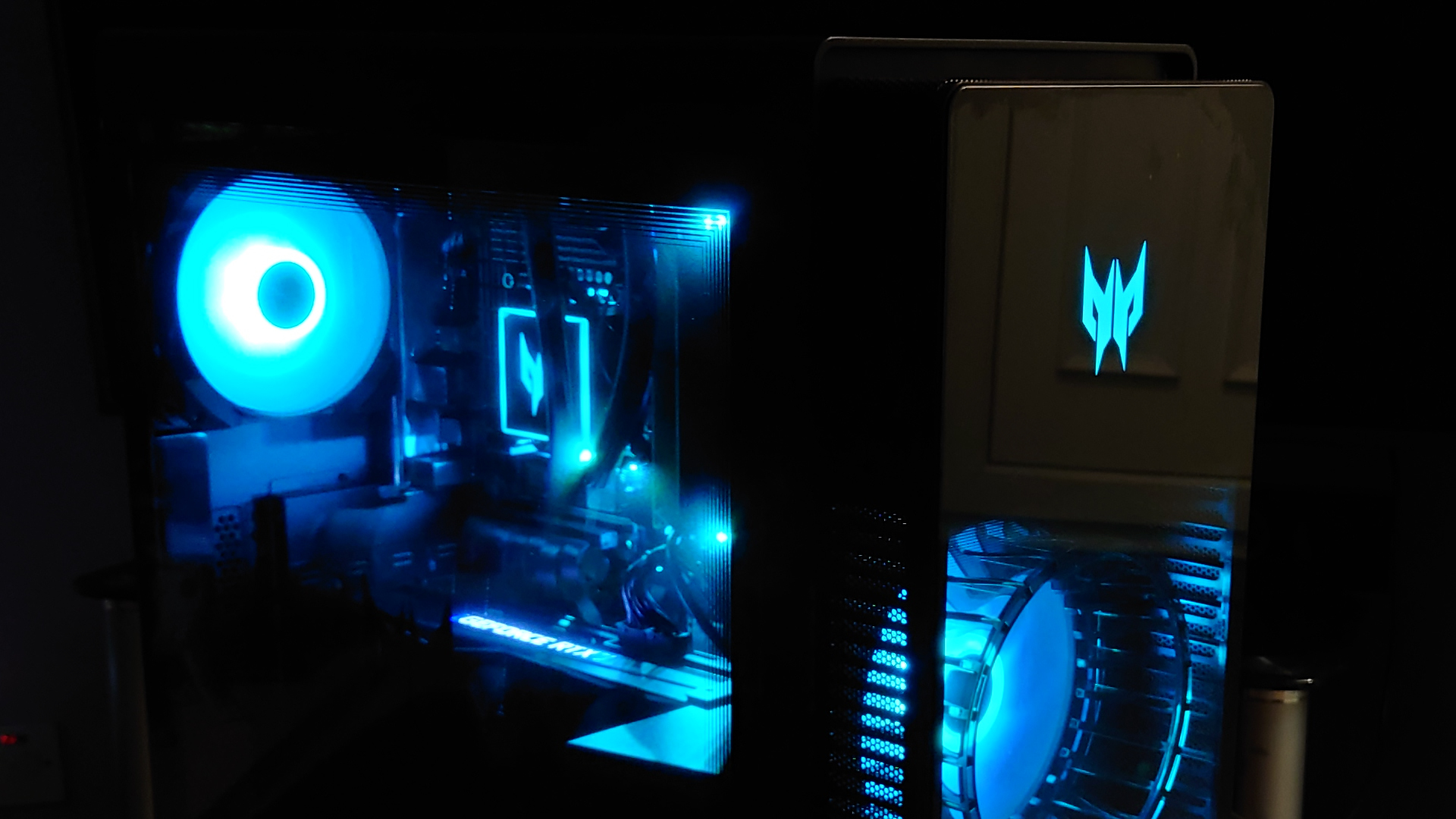GamesRadar+ Verdict
The Acer Predator Orion 7000 is a pricey gaming PC, that's undisputed, however, given the incredible performance on display, the barrier to entry is justified here
Pros
- +
Incredibly powerful performance
- +
Built for tomorrow's games
- +
Stellar build quality and design
- +
Easy to upgrade
- +
Minimal bloatware
Cons
- -
Not the cheapest RTX 3090 PC
- -
Gets loud when full throttle
Why you can trust GamesRadar+
(Editor's note: We've just reviewed the very fancy 2023 refreshed version of this PC that's compatible with 13th Gen Intel CPUs, and has updated DDR5 RAM and an RTX 4090. With that motherboard likely becoming the normal one supplied in these rigs from here on in, we'd recommend checking out our Acer Predator Orion 7000 (2023) review.)
I'll cut right to the chase and tell you that the Acer Predator Orion 7000 is easily one of the best gaming PCs on the market right now. It's clear in everything from the components inside (doubly so when factoring in the jump to DDR5 and PCIe 5.0 support) as well as the ease-of-upgrading, too. If you've been after a machine that's built for the future, which has technologically relevant gear inside and stellar build quality to back it up, then this unit should be at the top of your considerations list as far as prebuilt rigs go in 2022.
Design and Features
Here's what's inside our Acer Predator Orion 7000 review unit that was supplied to GamesRadar.
Processor: Intel Core i9-12900K
GPU: Nvidia RTX 3090
Memory: 32GB DDR5-4000 MHz RAM
Storage: 1TB NVMe SSD Gen 4.0
Ports: Front I/O: 3x USB 3.2; 1 x USB-C; 3.5mm jack. Rear I/O: 3x DisplayPort 1.4; 1x HDMI 2.1; 3x USB 3.2; 1x USB-C; 2x USB 2.0; Ethernet; 3.5mm jack
Connectivity: 2.5G LAN, WiFi 6E, Bluetooth 5.12
Dimensions: 8.62 x 19.09 x 19.87 inches
Weight: 42.2 lbs (19.1 kg)
This new iteration of the Acer Predator Orion 7000 represents a huge visual overhaul from the company's previous efforts in forgoing the tried and true design. Here, the unit has received a substantial facelift, replacing the plastic-heavy, angular nature of the past aesthetics. With this model, glass and class are the name of the game.
The entirety of the case itself is built without the need for tools to open the side panels or tinker with the roof, which is sure to be a greatly appreciated touch once those upgrade urges come into the fold. On that subject, I was taken back by just how minimalist the inside of the Acer Predator Orion 7000 was. It's common with prebuilt machines to feature specifically engineered parts in custom-made housings out of view, and yet, the guts of this PC look right at home with that of what you can build yourself - for the most part. The one exception is in the form of the in-house AIO water cooler adorned in the brand's Predator logo with ARGB compatibility, but it's overall a nice touch.
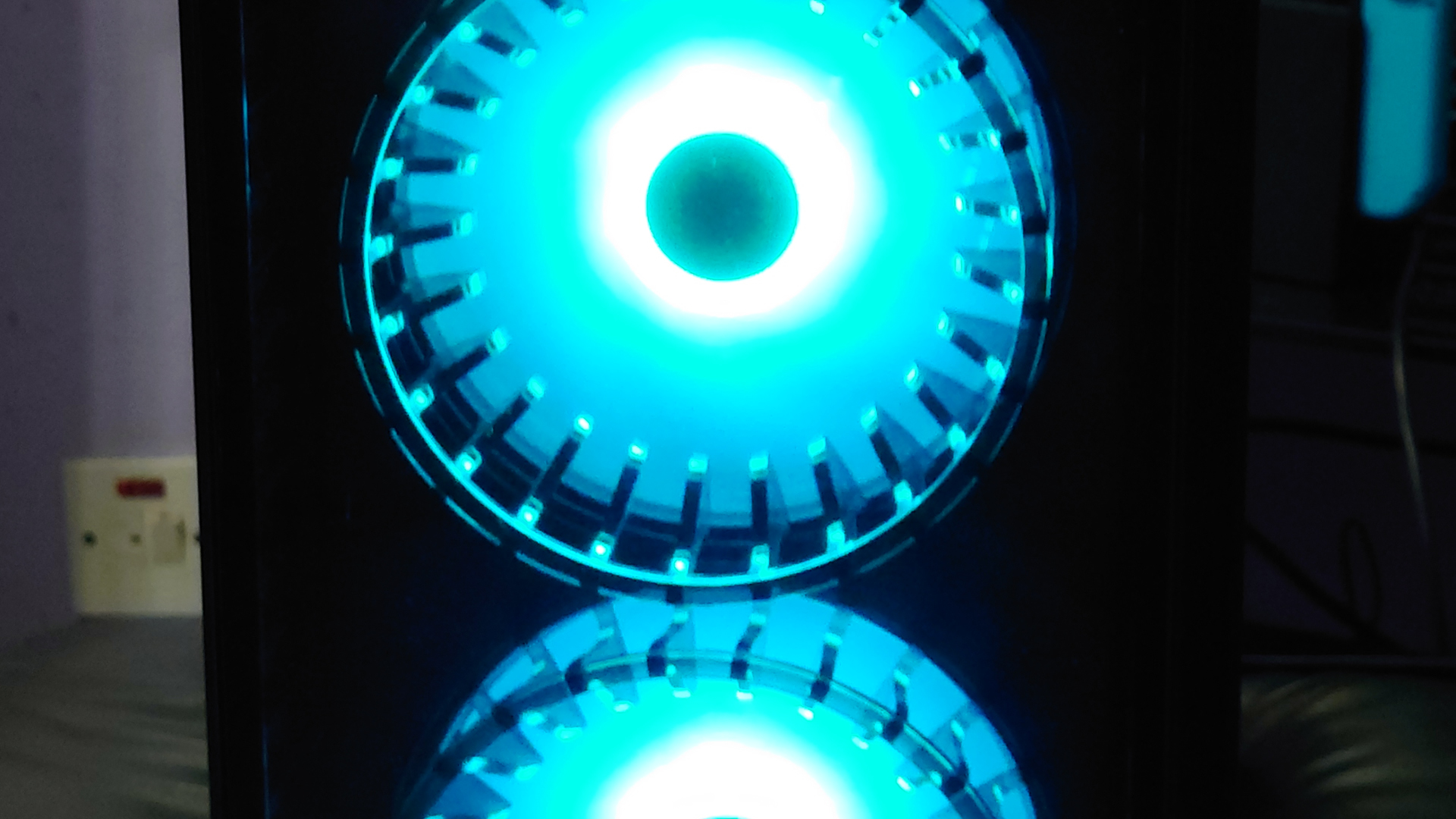
'Modern' really is a word that describes the full package presented with the Acer Predator Orion 7000 in many respects, from the gear inside to the design ethos. The major shakeup to the formula that this new iteration brings to the table, though, is the inclusion of the super-powerful Intel Core i9-12900K, with the 12-gen Intel processors being some of the best CPUs for gaming.
Of course, that's only one side of the story, as the real star is support for PCIe 5.0 and DDR5 RAM, meaning that the Acer Predator Orion 7000 is futureproofed for years to come. This review unit features 32GB DDR5 RAM clocked at 4000 Mhz, so while it's not quite scraping the horizons of 6000 Mhz+, you're going to notice a jump up in snappiness across the board. My usual daily driver gaming PC features a 3200 MHz DDR4 RAM dual channel kit, and the leap to DDR5 was immediately noticeable.
Then we get on to the RTX 3090. Though the BFGPU originally dropped back in late 2020, there's nothing outdated about this behemoth. Simply put, it's one of the best graphics cards for gaming, and still the most powerful video card on a consumer level by quite a longshot. Armed with 24GB GDDR6X VRAM, a 384-bit memory bus, and 19 Gbps bandwidth, there's very little that can challenge this card, yet. While we've seen a few games with more demanding video memory requirements creeping up in the past year, you're still not going to need anywhere near this much for a very, very long time.
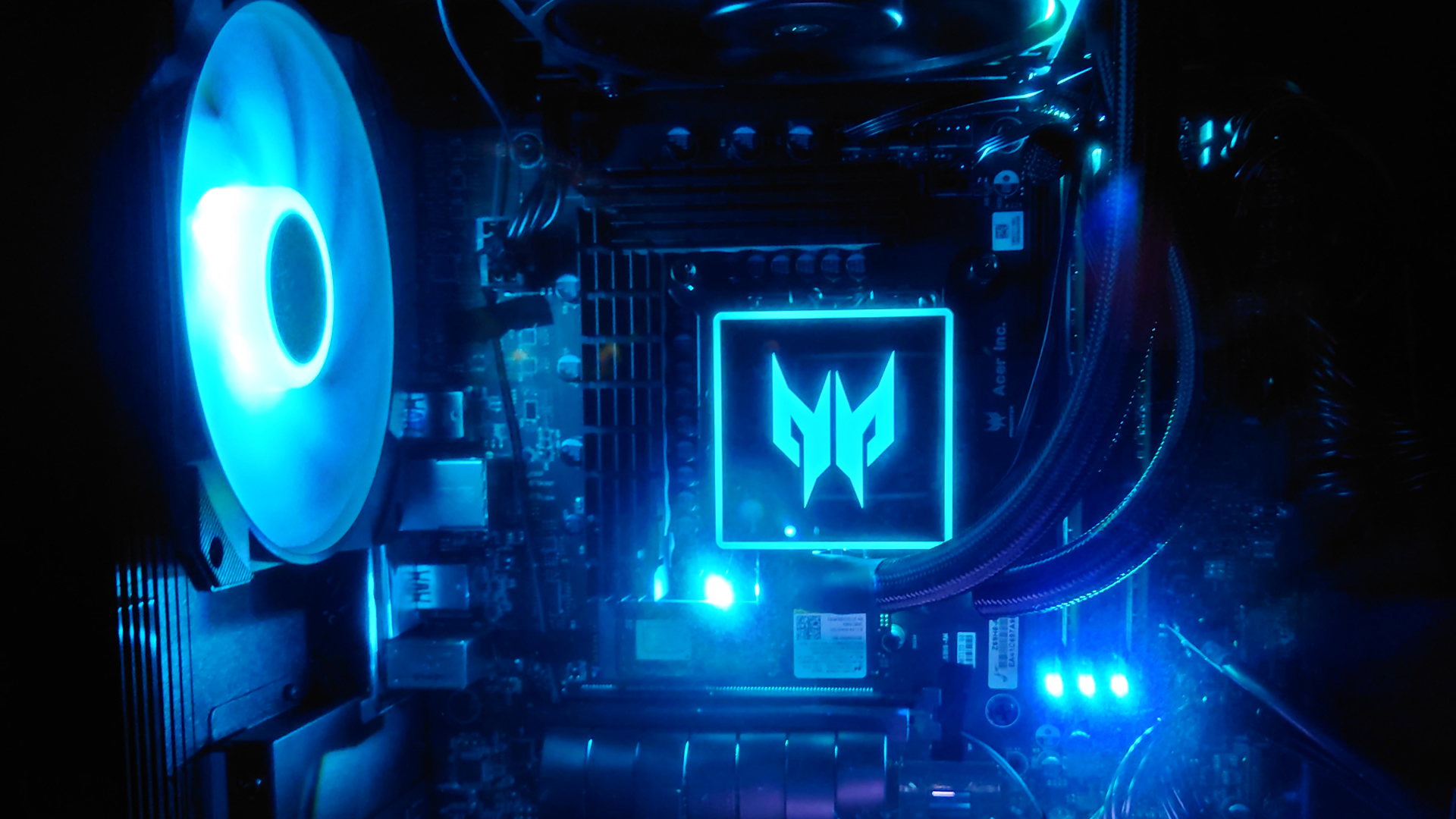
Performance
Here's how the Acer Predator Orion 7000 got on in some of our industry-standard benchmarking tests.
Firestrike (1080p): 37,101
Firestrike Extreme (1440p): 22,449
Firestrike Ultra (2160p): 12,002
Time Spy: 18,342
Time Spy Extreme: 9,489
Cinebench CPU: 1,872 pts (single-core); 20,671 pts (multi-core)
CrystalDiskMark: 6,033.72 MB/s read; 4,796.94 MB/s write
Anvil Pro: 17,323.05
PC Mark 10: 8,358
Here's what it comes down to, as the Acer Predator Orion 7000's performance is nothing short of exceptional. Given the prowess of the hardware, though, that's unlikely to be much of a shock. As you may expect, pairing the most powerful graphics card and processor on the market together makes short work of just about anything you throw its way. I use minimal hyperbole when I say that very little stands in the path of this machine's capabilities, as our benchmarks show.
I was blown away by just how efficiently the Acer Predator Orion 7000 handled itself through all the industry-standard benchmarks, with numbers that were previously unimaginable just a few short years ago. The only real caveat, especially for a rig that costs this much, is in the Gen 4.0 SSD itself.
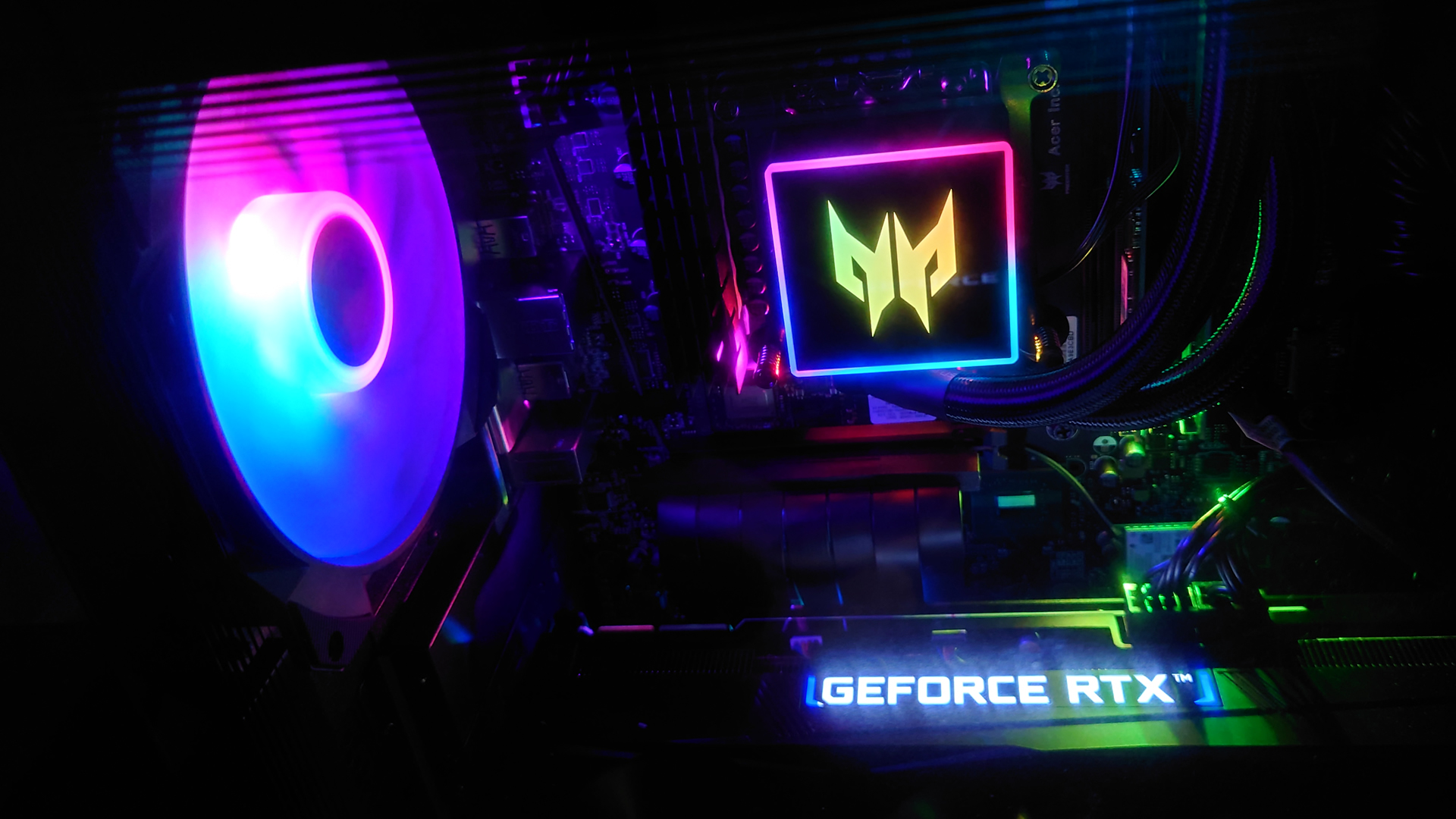
The 1TB stick, which appears to be a proprietary model, certainly holds its own as far as performance potential goes, though, it would have been better to have a drive inside that was capable of at least 7,000 MB/s read and 6,800 MB/s write, though the figures are more-than-respectable in-game and when booting Windows. You would think for such a high-end rig that 2TB would be included, but the SSD included does the job well.
This is how the Acer Predator Orion 7000 fared when running games in the RTX 3090's ideal resolution.
Metro Exodus (PC Enhanced Edition):
Extreme settings; ray tracing maxed out: 116 FPS
High settings; ray tracing on: 135 FPS
Shadow of the Tomb Raider:
Highest settings: 141 FPS
High settings: 166 FPS
The Division 2:
Ultra settings: 75 FPS
High settings: 102 FPS
Red Dead Redemption 2:
Ultra settings: 77 FPS
High settings: 126 FPS
Total War: Three Kingdoms:
Ultra settings: 51 FPS
High settings: 72 FPS
DLSS set to 'Performance' mode here available.
All frame rates are averages taken in-game or through benchmarks
Of course, gaming performance is the most vital element of high-end gaming PCs, and all those shiny components would mean nothing if the Acer Predator 7000 chugged and stuttered in the more demanding titles on the platform. You'll be relieved to hear that this rig absolutely decimates our line-up of benchmarking games in 2160p (4K) and all conventional resolutions for gaming in 2022.
Should you have access to either one of the best gaming monitors or best 4K monitor for gaming, you're going to be very happy with the visuals that can be pumped out here. The framerates on offer genuinely surprised me in my extensive testing sessions. I'll preface now for the sake of parity that all games that can support DLSS were tested in 'Performance' mode in order to attain a consistent average across the board, and the numbers are nothing short of incredible.
With a few exceptions, as has been noted, the Acer Predator Orion 7000 was pretty comfortable cranking out frame rates of 60+ FPS with ray-traced games maxed out in 4K. It's a feat that was previously unthinkable with titles such as Metro Exodus (PC Enhanced Edition) and Red Dead Redemption 2 just a few short years ago.
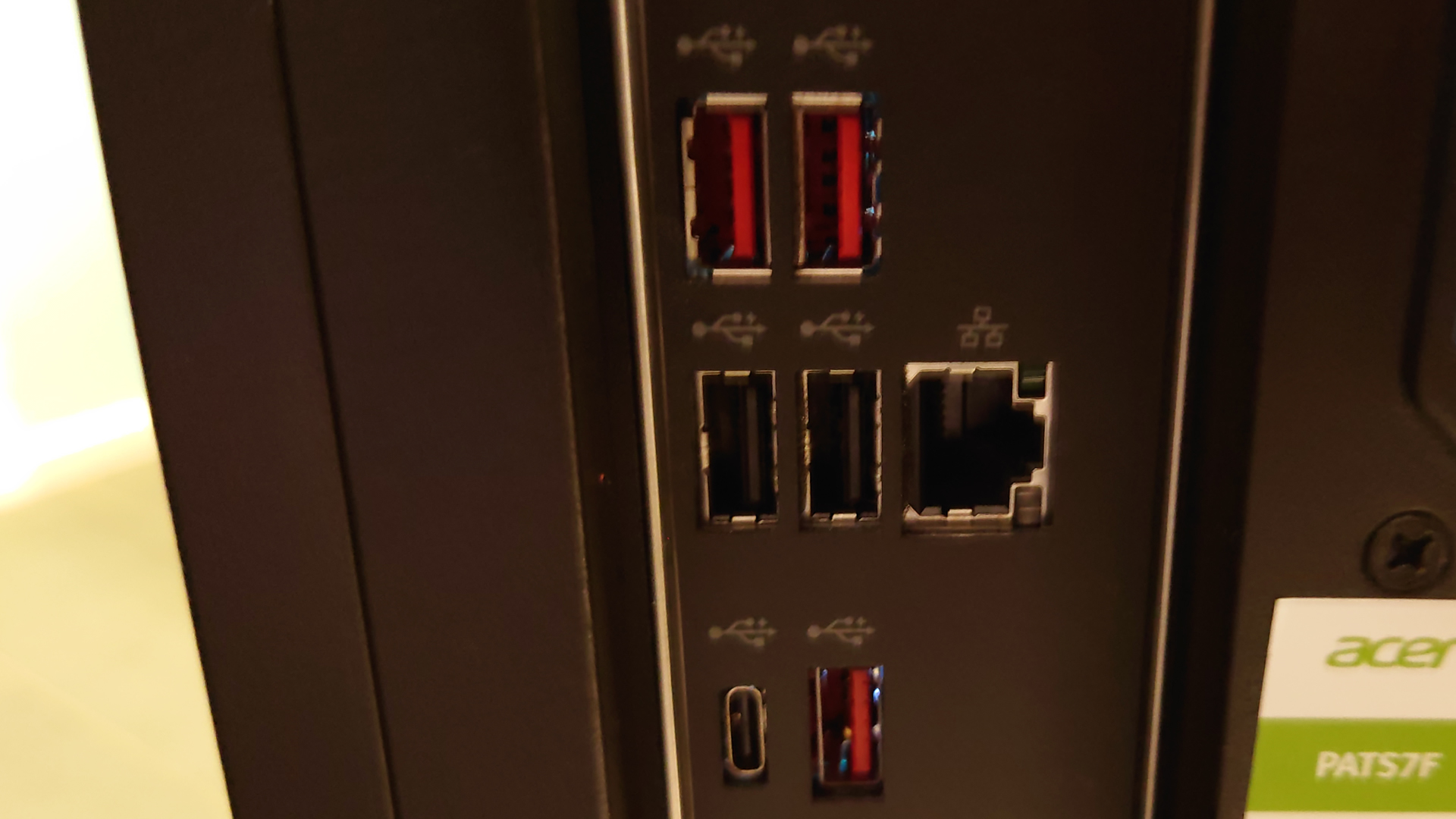
If you're wanting to chase higher framerates then you're going to need to drop the resolution down to 1440p, and this is where the raw technical power of the RTX 3090 inside of the Acer Predator Orion 7000 comes into its own. If you have a high refresh rate monitor and want that perfect mixture of high visual fidelity and high frames in games then this is likely to be the sweet spot.
This is how the Acer Predator Orion 7000 got on when running our benchmark games in other resolutions.
Metro Exodus (PC Enhanced Edition):
Extreme settings; ray tracing maxed out (1440p): 177 FPS
High settings; ray tracing on (1440p): 202 FPS
Extreme settings; ray tracing maxed out (1080p): 201 FPS
High settings; ray tracing on (1080p): 231 FPS
Shadow of the Tomb Raider:
Highest settings (1440p): 203 FPS
High settings (1440p): 207 FPS
Highest settings (1080p): 211 FPS
High settings (1080p): 212 FPS
The Division 2:
Ultra settings (1440p): 126 FPS
High settings (1440p): 162 FPS
Ultra settings (1080p): 159 FPS
High settings (1080p): 189 FPS
Red Dead Redemption 2:
Ultra settings (1440p): 136 FPS
High settings (1440p): 137 FPS
Ultra settings (1080p): 136 FPS
High settings (1080p): 185 FPS
Total War: Three Kingdoms:
Ultra settings (1440p): 99 FPS
High settings (1440p): 139 FPS
Ultra settings (1080p): 148 FPS
High settings (1080p): 198 FPS
DLSS set to 'Performance' mode where available.
All frame rates are averages taken in-game or through benchmarks
Having our benchmark titles exceed the 99 FPS mark with all settings turned up to 11 is seriously commendable. This metric represents not only the power potential of the Acer Predator Orion 7000 but also demonstrates just how efficiently PCIe 5.0 and DDR5 can be when fuelled with the right hardware.
Interestingly enough, I also completed a full playthrough of Cyberpunk 2077 at max settings in 4K with the framerate generally hovering around the 60 FPS mark. Until very recently, that's not been possible. There's something to be said for being able to explore Night City in all its visual splendor with stable performance that nothing short of the best components would be able to manage.
On the subject of the parts inside the Acer Predator Orion 7000, then. Despite its small size, the 120mm radiator and custom AIO liquid cooler did a stellar job of keeping the Intel Core i9-12900K temperatures down. I'm not going to pretend as though this chipset kept chill at all times, especially during intensive benchmarking, peaks of anywhere near the danger zone (85 degrees and above) were very few and far between. The newest i9 isn't exactly known as the coolest processor going, though.
That's to say nothing of the PredatorSense software and its ability to overclock the CPU and dial up the fans into a kind of turbo mode. While there was the option to manually go full throttle with the case fans and pump at max, I found that the system's auto function did a decent job of knowing when to tame the heat. The only thing I can tell you is that the case fans inside are far from the quietest on the market, as you'll definitely know when overdrive is engaged. While it's no secret that this degree of hardware needs an effective cooling solution, my best advice is to let the PC itself regulate temps instead where possible.
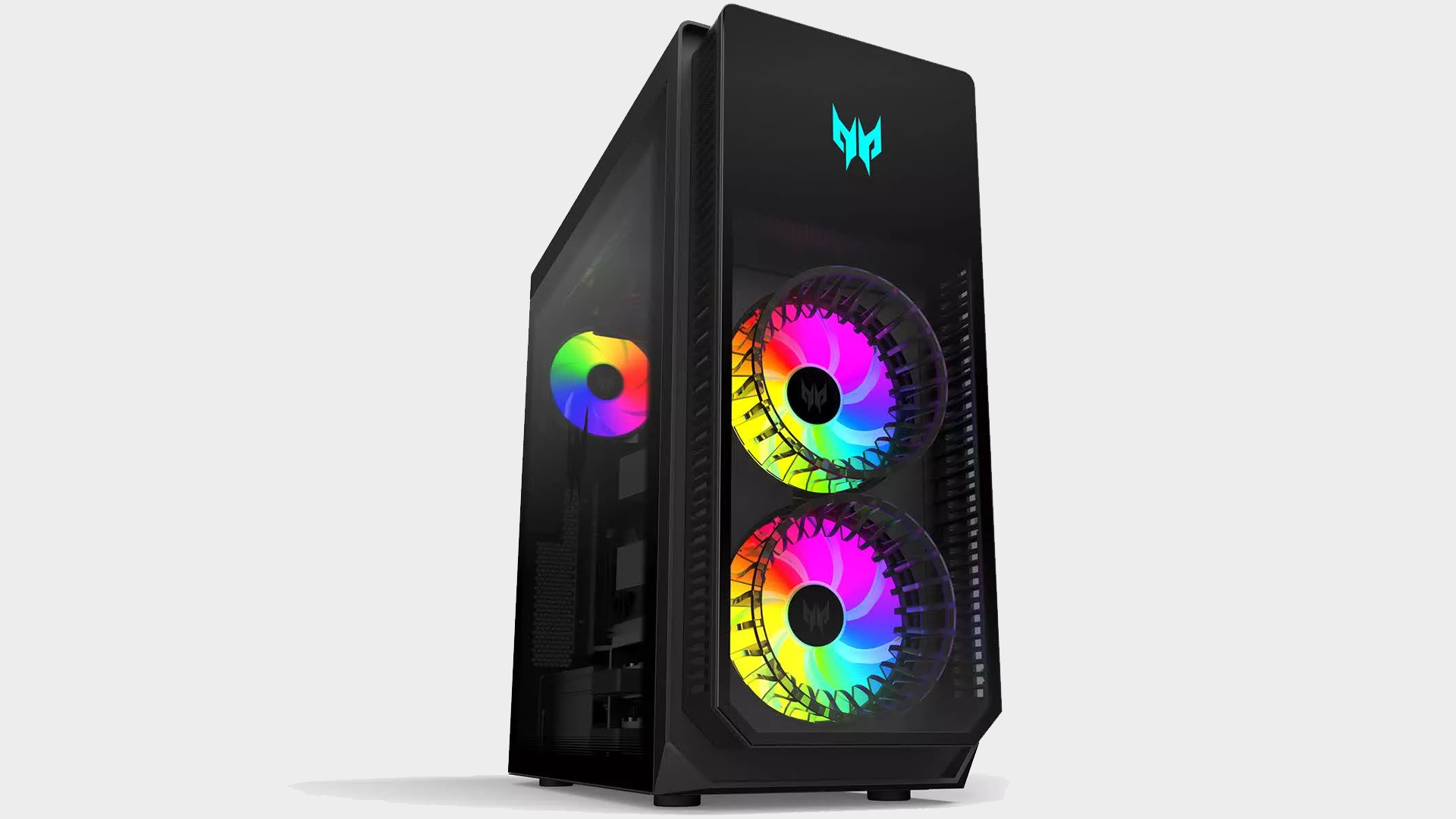
Overall - should you buy it?
The Acer Predator Orion 7000 is nothing short of a triumph as far as modern, high-end PC gaming is concerned. Playing the latest titles on this rig was an absolute joy, and the transition to PCIe 5.0 definitely plays a part in that. With DDR5 RAM support, a fast Gen 4.0 SSD, and that monster of a graphics card, there's very little that this PC can't do. I can wholeheartedly recommend the Acer Predator Orion 7000 to anyone wanting a stellar experience at a premium.
How we tested the Acer Predator Orion 7000
I stress tested the Acer Predator Orion 7000 over a several-day period to see how it would fare in a string of industry-standard tests as well as some of the more demanding games on the market. This included extensive benchmarking in the likes of Fire Strike, Time Spy, PC Mark 10, and the others listed above.
I also used the Acer Predator Orion 7000 as a PC gamer in a series of video games available through Steam, Origin, Epic, and Ubisoft Connect, having this rig temporarily replace my own setup. 2160p was prioritized over 1440p and 1080p, with the unit rigged up to a 27-inch 4K monitor most of the time. This machine was also benched on both a high refresh rate 1440p display and a 1080p panel, too.
I've been involved with PC hardware for over seven years - since the days of the 4th gen Intel Core CPUs and the GTX 900 series. I have also had my hands on the vast majority of components and gear in this time, too.
Buy if...
- You want to experience high-end 4K gaming
- You want a futureproofed PC that's ready for tomorrow's games
- You want to be able to upgrade your machine
Don't buy if...
- You would rather build a rig yourself
- You have no interest in 4K gaming
- If you need to stick to a lower budget
Enhance your gameplay experience with the best gaming keyboards, best gaming mouse, and best gaming headsets available.

Aleksha McLoughlin served as the Hardware Editor for GamesRadar from June 2021 until August 2022. Her main area of expertise was the PC gaming platform, which comprised buying guides, features, reviews, and news coverage on components and prebuilt machines. She was also responsible for gaming chairs and storage. She now works on a freelance basis while studying to become a university lecturer specializing in English for foreign territories. Prior to joining GamesRadar, she wrote for the likes of Expert Reviews, The Rory Peck Trust, No Clean Singing, Vinyl Chapters, and Tech Spark while also working with the BBC.

